Research team
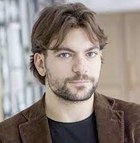
Prof. Roberto Cazzolla Gatti
Research team coordinator
Associate Professor of Conservation Biology and Biodiversity at the University of Bologna from 2021, where he is also a member of the BIOME – Biodiversity and Macroecology Lab.
Ecologist and evolutionary biologist. PhD in forest ecology.
His interdisciplinary research deals with Ecosystem and Planetary Health, Biodiversity (plant & animal) and Global Environmental Protection, occurring at the interface between ecology, evolution, and ethology.
From 2015 to 2021, he was an Associate Professor at the Biological Institute and the coordinator of the MSc Program in Biodiversity of the Tomsk State University (TSU), in Russia.
He also served as an Associate Professor at the Polytechnic of Rouen UniLaSalle (France), a Senior Research Fellow of the Konrad Lorenz Institute (KLI) for Evolution and Cognition Research (Austria), a Research Associate at the Department of Forestry and Natural Resources of Purdue University (USA), and a Visiting Professor of the Beijing Forestry University (China).
He is a member of the IUCN and Society for Conservation Biology, and an external faculty of the KLI. Before, he was researcher at CMCC and consultant of the UN-FAO and WWF.
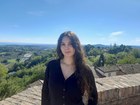
Carola Valenti
Research Hub Assistant
Carola is a biologist and studies Biodiversity and Evolution at the University of Bologna. She has a deep interest in Conservation Biology and One Health studies.
She serves as the Research Hub Assistant to help in communication, membership, event organization, research coordination, and publication process.

Prof. Alfonso Monaco
Alfonso Monaco is Associate Professor of Applied Physics at the University of Bari, Italy. His current research interests are in life sciences, medical physics, and genomics using artificial intelligence methods and complex networks. His research activity (over 250 publications, H-index=32) deals with: 1) the development of pattern classification techniques for data interpretation and signal approximation; 2) the implementation of machine learning techniques for the study of complex systems in Grid/Cloud computing environment.
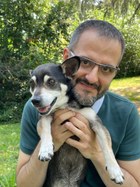
Prof. Davide Gori
Associate Professor in Epidemiology at the University of Bologna, Italy
Department of Biomedical and Neuromotor Sciences

Prof. Alessandra Scagliarini
Graduated in Veterinary Medicine, she obtained a PhD in Epidemiology and Control of Zoonotic Diseases. Full Professor of animal infectious diseases, she leads the One Health International Study Centre at the Department of Medical and Surgical Sciences University of Bologna. Her scientific interests lie in the inter and transdisciplinary approach of One Health in research to deepen the interactions between humans, animals and ecosystems triggering the occurrence of health emergencies and to effectively manage endemic diseases with high social economic impact. Member of the board of the International Society for Infectious Diseases (ISID) and associate Editor of IJID -One Health Journal. Member of the WHO One Health Working group on Skin Neglected Tropical Diseases (NTDs). At present, she leads the UNA- One Health Self Steering Committee of the UNAEUROPA Alliance. In October 2023, she received the One Health Award as best Italian scientist in the field.
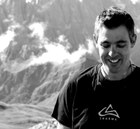
Prof. Duccio Rocchini
Duccio Rocchini [born in 1975 in Siena] is Full Professor at Alma Mater Studiorum University of Bologna from December 2019, after having been Associate Professor in Biology and Ecology at the University of Trento, from February 2017. He attained his PhD in 2005 under the supervision of Prof. Alessandro Chiarucci, dealing with remote sensing applied to the estimate of biodiversity.
After having collaborated with international researchers from institutions like U.S. Geological Survey, University of Nottingham (School of Geography, UK), Ashoka Trust for Research in Ecology and the Environment (India), University of California Los Angeles (Department of Geography, US), he joined the Fondazione Edmund Mach in Trento in 2009, in the Dr. Markus Neteler's GRASS GIS and Remote Sensing group, promoting open source algorithms for Ecology.
Over the years he promoted the use of remote sensing for the study of biodiversity change in space and time, publishing more than 190 ISI papers on this theme.

Dr. Alessandra De Pascali
Graduated in Health Biology, she obtained a PhD in Medical Microbiology with a project on Leishmaniasis. Researcher at the Department of Medical and Surgical Sciences, she is currently working on “One Health Basic and Translational Research Actions Addressing Unmet Needs on Emerging Infectious Diseases (INF-ACT)” project.
Her scientific interests are focused on human-environment-animal interactions in the study of vector-borne diseases, with particular focus on the impact of climate change. Professor of Clinical Microbiology in Bachelor of Nursing. She also has been lecturer during the Winter School "One Health, unifying perspectives on climate change," and for the UNIBO PhD course "Future earth, climate change and societal challenges". She has been part of the One Health Self steering committee of the UNAEUROPA Alliance. She is the author of a cartoon on vector-borne diseases published on Youtube during One Health Day 2022. Finally, she participated in the writing of the MOOC (in progress) "Artificial intelligence and (One) health" in collaboration with colleagues from UNA EUROPA's One Health Focus Area.
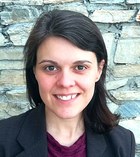
Dr. Arianna Di Paola
Researcher at the National Research Council (CNR) of Italy, Institute for BioEconomy (CNR-IBE).
Graduated in Environmental Science, Ph.D. in Forest Ecology, Arianna specializes in interdisciplinary areas such as Climate Change, Agriculture, Forest Ecology, Sustainability, and their interconnections. She possesses a robust skill set encompassing statistical models, machine learning, the development of data-driven computational algorithms, and non-parametric statistical analysis.
Prior to joining CNR, Arianna worked as a researcher at the Euro-Mediterranean Center on Climate Change Foundation (CMCC) from 2012 to 2020, where she was part of the Impacts on Agriculture, Forestry, and Ecosystem Services division (IAFES). Since 2021, she has been an active member of the CNR Drought Observatory Working Group.

Dr. Michele Torresani
Michele Torresani is a forest ecologist at the Free University of Bolzano who specializes in utilizing remote sensing data to assess various ecological variables such as biodiversity, forest biomass and structure and biogeochemical cycles across diverse ecosystems. He earned his Ph.D. from the Free University of Bolzano, focusing on the application of satellite optical and LiDAR data for biodiversity estimation. Following his Ph.D., Michele worked as a post-doc at the University of Bologna, contributing to the EU 2020 SHOWCASE project. Here, his focus was on estimating different aspects of biodiversity in agricultural areas using optical remote sensing data. Michele has also served as a visiting scientist at prominent institutions, including the University of Freiburg (Germany), University of Erlangen-Nuremberg (Germany), and the Instituto Superior de Agronomia of Lisboa (Portugal). Currently, Michele holds the position of Assistant professor at the Free University of Bolzano. In addition to his ongoing research on the application of remote sensing data in ecological contexts, he actively teaches at the University of Bolzano the course on 'Environmental Geomatics and Remote Sensing.
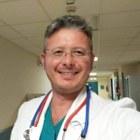
Dr.Med. Alfredo Mazza
Alfredo Mazza was born in 1971, is a doctor, cardiologist, at the Sarno hospital - ASL Salerno, and associate researcher at the Institute of Complex Systems of CNR - Rome, in 2004 he published the famous article in the prestigious magazine "The Lancet" : "The Triangle of Death" bringing to the scientific and social limelight the serious waste crisis in Campania and the correlation between environmental pollution from Ecomafia and cancer disease. He is the author or co-author of other studies and publications in international scientific journals and was a speaker at numerous conferences on the subject of Environmental pollution and health. He was also a promoter of innovative proposals and projects for the territories and institutions. Alfredo Mazza received his bachelor's degree in medicine and surgery with honors from the University of Naples Federico II, then a PhD in Metabolic Sciences at the Second University of Naples, then specialization in Cardiology at the University of Catania, he also obtained a Master's Degree in Biotechnology Medical and a master's degree in Political Science, also various Masters and Improvements in biomedical sectors. During his studies he was a guest at Italian and foreign universities and research centers. He was an "adjunct" professor at "Temple University", of Philadelphia - USA and adjunct professor of General Pathology at the Federico II University of Naples. Currently his fields of interest, study and research are: Environment and Health, Big Data, Digital in Health, Aerospace Medicine. Alfredo Mazza is co-founder of the UNESCO Chair: "Health Education and Sustainable Development" at the University of Naples Federico II, whose hobbies include reading, theater, social networks and politics, he is married and has two children, lives in NOLA (NA) and is a member and a fellow of various scientific and cultural associations and is president of the European Association Nola – Bordeaux.
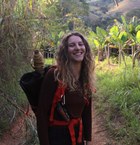
Paola Merelli
Born in 1999 in Italy, I am a young graduate with a bachelor’s degree in Biological Sciences from the University of Milano Bicocca and a master’s degree in Global Change Ecology form the University of Bologna. My insatiable curiosity has fueled my passion for the Earth’s biodiversity and my deep sensitivity makes me want to fight against its destruction through rewilding projects and conservation efforts, with a particular focus on Forest ecology. Currently, I am collaborating as a research assistant with a Brazilian NGO, Iracambi, dedicated to the conservation and restoration of the Atlantic Forest. The modern society has a deep impact on our planet and the negative consequences of its long history of exploitation and destruction are undeniable. My ultimate aspiration is to contribute to a world where Homo sapiens is no more the dominant species, but rather one coexisting harmoniously among the rich tapestry of Earth's life forms.

Rocìo Beatriz Cortes Lobos
I am a Ph.D. student at the University of Bologna and my research focuses on the application of machine learning methods to satellite images and the analysis of land cover changes. Currently, I am working on the Biodiversity Building Blocks for Policy - BCUBED project, which is funded by the Horizon Europe Research and Innovation Programme. The project's objective is to model biodiversity scenarios using deep learning techniques.
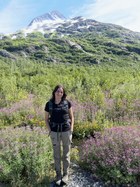
Sofia Prandelli
Currently holding the position of PhD Candidate in Environmental sciences and graduated in Natural science and management, I'm focusing on the topic of global change and its management through mitigation and adaptation solutions applied to both natural and anthropized systems, in particular on the impacts on linear infrastructures on biodiversity and ecosystems.
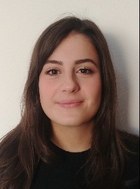
Martina Livornese
Martina is currently pursuing a PhD in Conservation Biology at the BiGeA Department of the University of Bologna. Her research primarily revolves around understanding ecosystem tipping points triggered by human activities. Additionally, she is interested in studying ecological thresholds, as well as the relationship between ecosystem health and biodiversity.
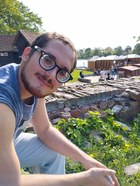
Jacopo Iaria
Jacopo Iaria graduated in environmental requalification at Sapienza University of Rome currently a PhD student at Alma Mater Studiorum University of Bologna with a PNRR scholarship. His field of research is ecological dynamics inside Protected Areas with a special focus on italian national and regional parks, in articular using both remote sensing and field-data based technique to assess local and landscape changes inside said areas.
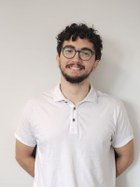
Alessandro Fania
Alessandro Fania is a PHd student in Physics at the University of Bari, Italy. His current interests are in One Health modeling, Remote Sensing, Classical and Quantum Machine Learning, Explainable Artificial Intelligence and Complex Systems. His research activity deals with: 1) the development of a forecasting model to predict ground-level air pollution from satellite data; 2) the development of One Health model to study complex disease, like Autism and Alzheimer, using pollution and genomic data.
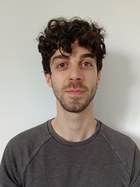
Antonio Lacalamita
Antonio Lacalamita is a PhD student in Physics at the University of Bari, Italy. His current interests are in Machine and Deep Learning, Explainable Artificial Intelligence, Complex Systems, High-order Complex Network. His research is centered on employing robust computational physics methods to analyze genetic systems. The primary objective is to uncover novel biological patterns associated with the diseases or behaviors under investigation; create decision support systems aimed at aiding specialists in identifying complex diseases by integrating genetic, clinical, and various other data types.
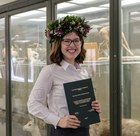
Bianca Vandelli
I was born in 1997, I have a Bachelor in Natural Sciences and a Master in Sciences and Management of Nature. Since I was a kid, conservation and sustainability have been my passion, which I am pursuing also through environmental activism and volunteering. I am currently a scholarship holder working as the coordinator of a project about biodiversity monitoring in the Municipality of Bologna. I believe AI applied to One Health to be one of the few positive implications of modern technology, and essential to our own survival.
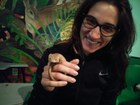
Dr. Francesca Maura Cassola
Francesca Maura Cassola, born in 1989 in Maldonado (Uruguay), has been a research fellow at the Alma Mater Studiorum University of Bologna since 2022, where she is working on monitoring the ecosystems and species of the Val d'Agri (Basilicata).
She obtained a Bachelor's Degree in Science and Technology for Nature at the University of Pavia in 2011 and a Master's Degree in Naturalistic Conservation and Communication at “La Sapienza” University of Rome in 2015.
She earned a Doctorate in Research in Ecology and Sustainable Development, focusing on Biodiversity Conservation at El Colegio de la Frontera Sur in Chetumal, Mexico, in 2021.
In addition to monitoring wildlife, she is also interested in how animal behaviour and personality can be valuable tools for species conservation.

Martina Brandolini
Graduated in Health Biology, I’m a PhD candidate in Clinical Microbiology at the University of Bologna and my research focuses on the development of viral inactivation methods based on the application of high hydrostatic pressure suitable for the production of whole-virus inactivated and thermo-stable vaccines against SARS-CoV-2 and arthropod-borne viruses, especially West Nile virus. Currently, I’m working on vector-borne viruses at the human-animal-environment interface, with a particular attention to arboviruses

Prof. Gabor L. Lovei
Senior Scientist (Emeritus), Aarhus University
Professor, Chinese Academy of Agricultural Sciences, Beijing & Hungarian University of Life Sciences, Godollo, Hungary
Dr Lovei is a terrestrial ecologist, focusing on invasion biology, biosafety, agroecology, conservation biology, biodiversity, and ornithology. Over the past 35 years he has studied invertebrate and vertebrate ecology in numerous international collaborations in Europe, New Zealand, Africa, South America and China.
His current research is on the environmental effects on biodiversity of biological invasions, agricultural operations, landscape management and urbanisation, as well as quantifying ecosystem services, and bioethics. He has been advisor to several national and international organisations and is active in international scientific societies.
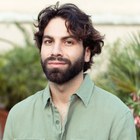
Giuseppe Distefano
Giuseppe Distefano holds a Bachelor’s degree in Biological Sciences and is currently pursuing a Master’s degree in Teaching and Communication of Natural Sciences (DiCoSN) at the University of Bologna. Committed to enhancing the communication of ecological, health, and environmental issues, his areas of interest include antibiotic resistance, climate change, biodiversity loss and policy-making. Additionally, he is keenly interested in the History and Philosophy of Science, Science Education, and the Public Dissemination of Science.
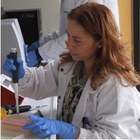
Prof. Floriana Campanile
Floriana Campanile is associate professor of Microbiology at the Medical Microbiology, Molecular and Antibiotic-Resistance Laboratory (MMARlab) of the Department of Biomedical and Biotechnological Sciences (BIOMETEC), University of Catania (Italy). She is currently involved in national and international project-design, research and collaborations. Author of about 75 papers in peer-reviewed international journals. Associate editor for International Journal of Antimicrobial Agents (IJAA), Frontiers in Cellular and Infection Microbiology and BMC Microbiology.